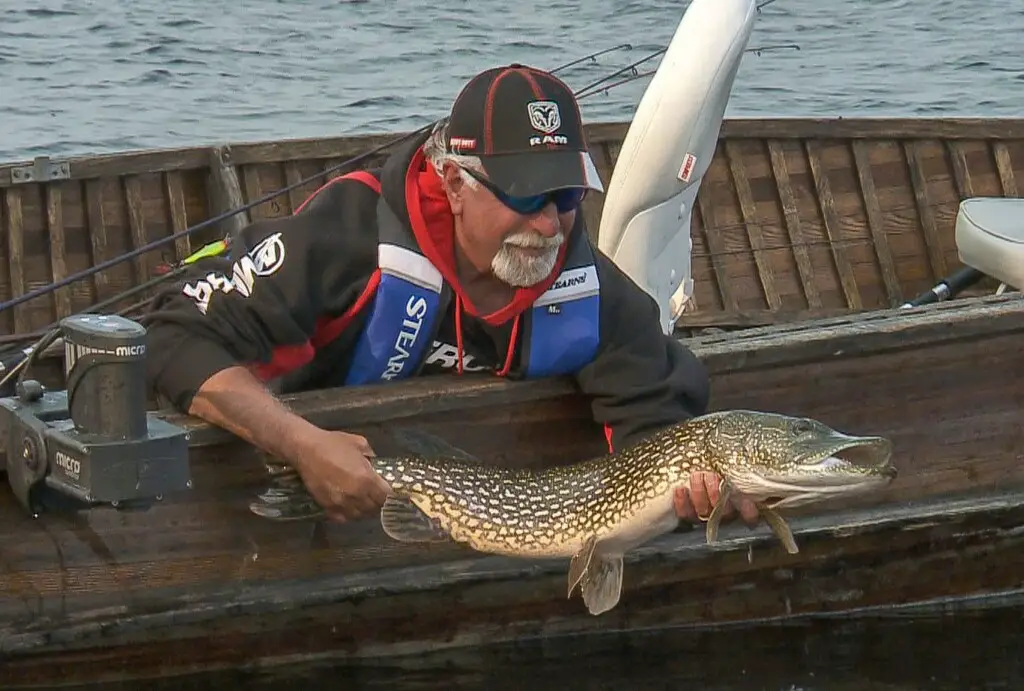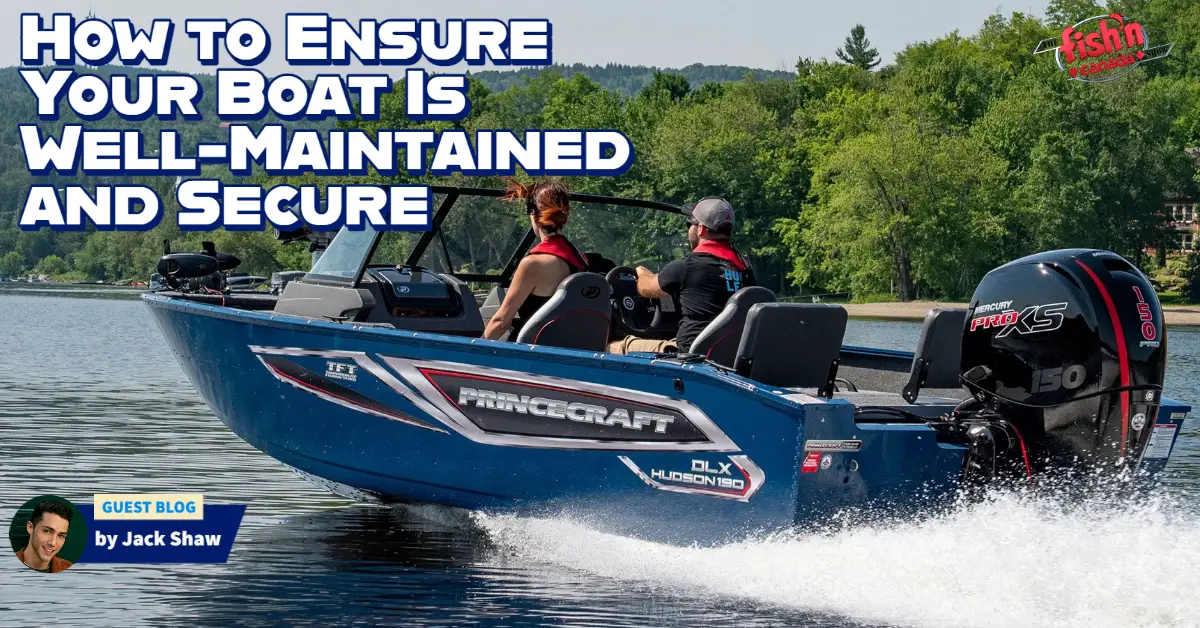Fishermen across the country are organizing their tackle boxes and preparing their boats for the warm weather ahead. Is your vessel ready for action? Here’s how to ensure your fishing boat is well-maintained and secure before you take it out to open waters.
Preventive Maintenance
Preventive maintenance is your most important responsibility as a boat owner. Annual upkeep costs about 10% of the boat’s value and consumes even more time. Here are the maintenance basics for your vessel’s essential parts.
1. Engine

You should always inspect your boat’s engine before and after taking it onto the water. Watch out for cracked hoses and loose belts and replace them as soon as possible if you notice any damage. DIY repairs are not recommended unless you or a friend is an experienced marine technician.
You also need to look out for signs of engine corrosion, such as blistering paint and the formation of a white powdery substance on exposed metal. A little rust is normal, but don’t let it get out of control.
2. Propeller
Propeller maintenance depends on your boat’s motor. It’s vital to check the propeller on an outboard or stern-drive motor before launching and tighten the nut as a precaution. Look out for small dents that could affect performance and decrease your boat’s fuel efficiency.
You should also remove the propeller to clean and grease it at least once a year, based on how often you use the boat. Propellers need to be properly lubricated.
3. Oil and Other Fluids
You should change your boat’s oil every 100 hours. As with land vehicles, you can do a DIY oil change or hire a technician. If you want to take the DIY approach, remember to let the engine run for a few minutes to warm up the oil inside. It can take up to 30 minutes to drain, so be patient.
Once all the dirty oil has drained, replace the filter and drain plug and refill the engine with fresh new oil. Don’t forget to inspect your boat’s other fluid levels, including the power steering fluid, engine coolant and antifreeze.
4. Battery and Electrical Wiring
Before every boating trip, check your battery’s charge with a digital multimeter and inspect all the wiring. A simple cleaning with a wire brush will remove any surface-level debris. Ensure the battery’s straps are tight before launching. Finally, remember to fill your battery with distilled water instead of tap water. The purer, the better.
5. Bilge Pump
The bilge pump can easily get clogged with debris after a few hours on the water. You must frequently check the hoses to ensure the pump is clean and drains water properly. Many boat captains add a backup just in case. You can never be too cautious regarding bilge pump maintenance because its role is too important.
Cleaning Schedule

You must implement a tight cleaning schedule to keep your boat in good condition, especially if you use it in saltwater. Start by washing it with soap and fresh water after every excursion. It’s essential to remove the salt before the corrosive effects kick in. Even if you only use your boat in freshwater, you should still wash it to remove the dirt and grime after each trip.
Here are the cleaning requirements for your boat’s different materials.
1. Fiberglass
Fiberglass boats are resistant to the elements thanks to their glossy gel coatings, but these extra protective layers don’t last forever. You can tell when the gloss needs maintenance when it looks chalky and abrasive. A fresh waxing and polishing will make it look good as new. You should apply a fresh coat of wax at least once a season.
2. Upholstery
Your boat’s vinyl upholstery is durable and easy to clean. You need to wash the seats with soapy water and cover them when not in use. Keeping your upholstery clean can save you a lot of money. New boat seat cushions cost $1,500 to $2,000 and would take big chunks out of your maintenance budget. Restoration is easier and less expensive.
3. Canvas
The different canvas fabrics on your boat are supposed to be waterproof, and it’s your job to keep them that way. You just need a light brush, soap and water to clean the materials. Give them a good scrub at least once a season. As for your boat’s windows, avoiding ammonia cleaning products and sticking with a basic cleaning solution is best.
4. Woodwork

If you own an older boat, there’s probably a good amount of woodwork on board. Keeping wood in good condition is a difficult task. Use the mildest cleaner you can find and scrub with a soft brush. Watch out for cracks and chips because they can become safety hazards in the future.
Storage
The three biggest responsibilities of boat ownership are preventive maintenance, cleaning and storage. Here are some essential storage tips you should know, whether you keep your boat indoors, outdoors or on the water.
1. Outdoor
The main requirement for outdoor storage is a canvas boat covering. You can hire someone to shrink-wrap your boat to ensure proper coverage and ventilation. Alternatively, you could cover your boat by fitting a large tarp over a wooden frame. Just ensure there aren’t any holes.
2. Indoor
Indoor storage is the safest option but also the most difficult. If you don’t have a big enough garage, you have to find a unit at a dry-rack storage facility. The boat will remain indoors, safe from the elements and vandals. Just be sure to trickle-charge your batteries when storing your vessel. The hardest part is getting the boat to the facility and securing it to the rack.
3. On the Water
Your local waterways likely offer plenty of spots to leave your boat. You just need to look out for freezing water temperatures. Dock bubblers and de-icers bring warmer water from the bottom to the surface, preventing ice from forming around your boat. This option is the most practical if you plan on frequently using your boat.
Take Your Boat Maintenance Seriously
Your fishing boat can last for decades with the proper care, but it won’t survive more than a few years with minimal maintenance. Which option will you choose? Start taking upkeep seriously and remember these tips as you prepare for your upcoming excursions.






